New Moon: What is ordeal?
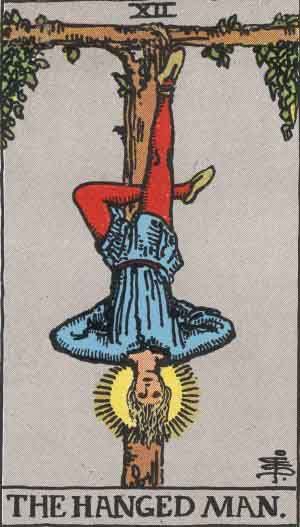
It's Friday. Hello, and best wishes as Aquarius season has gotten fully underway. My thoughts on the real function of astrology are still pending, but where I live, at bare minimum when the sun enters Aquarius (on the tropical zodiac anyway, but even moreso once it enters on the sidereal zodiac) that's the herald of our most vicious winter weather, which will last until just after entering Pisces. Later this season I will also write sometime about extreme winter storms; until then, if you experience similar weather patterns then I hope you and your loved ones are getting by. At my home, we've had a steadily increasing storm and snowfall pattern already; at the start of this week, we went for several hours without electricity, and later for several hours with neither internet nor phone service.
Despite having all systems restored at the moment, it's been somewhat of an ordeal. But not in the sense of ordeal that I want to write about today.
Ordeal. What is this word?
It's something ritual. It's something primal. It's something very old. To refine it further takes work.
A couple weeks ago I wrote about how art fascinates me in particular as a devotional act of fertility, although it also has ecstatic, for-its-own-sake qualities. At some point before that, I also realized that I see ordeal as one possible inverse of art. While ordeal is a thing with fertile qualities — that is, we may undergo an ordeal in order to produce a completely externalized outcome, such as to win a contest or approval, or to birth an object or a life — ordeal is most interesting to me from an ecstatic angle, an activity to undertake simply "because." This undertaking offers its own benefits that are internal to ourselves, and it forms one of the widest planks in why I tend to experience kink, especially BDSM[1], as a sacred activity.
However, while I've been making art as long as I can remember and could maybe offer a very philosophical but semi-concrete theory of what art even constitutes, ordeal is a relatively new term and tool in my (spi)ritual repertoire. I'm not yet sure exactly how important it is for me to use it. If I say the word to the right people in my kink or (spi)ritual spheres, though, they understand what I mean without further explanation; and I think I have a nonverbal grasp in my own head. I need to write this post both to better define ordeal for myself in actual words, and to help anyone reading along who has no frame of reference.
How I first heard of "ordeal work"
I'm not sure when I first heard of ordeal as a ritualized phenomenon, but I at least know how — namely in the longer phrase "ordeal work." Somewhere in my last half-dozen years of kinky life, I started to encounter kinksters, usually of some occult, animist/pagan, spiritual, mystic, or otherwise "woo"[2] bent, who were talking about ordeal work as some component of their practices.
I've encountered people presenting this work as something like elaborately choreographed and torturous endurance tests, sometimes almost like literal obstacle courses and other times more narrow in focus, like costumed scourgings around bonfires, holding highly uncomfortable rope bondage positions, flesh hook pulls (I've touched on this act's culturally appropriative tendencies before but its value seems fairly neutral if done right), entheogenic ceremonies (same issue/non-issue), fire walks (same), other activities involving sharps and bloodletting and burn risk (sometimes with the goal of creating scars and sometimes not), running gauntlets of beatings, listening to deliberate verbal humiliation (or being forced to accept verbal praise)... the list goes on and on. These activities may happen one-on-one or communally, at private residences or at events like the Maryland-based Dark Odyssey camp series that seem to blur the line between kink convention, religious pilgrimage, and whatever Burning Man used to be like in its early days. Last year a friend told me about something at that summer's Norwegian music/mythology/history festival Midgardsblot, wherein a man underwent a fantastic-sounding ordeal-like hook suspension ritual to embody the god Odin suspending himself to learn the runes.
Much like kink in general, the risks inherent to these apparent ordeal activities can overlap but are distinct from each other, and not everyone taking part in one activity will necessarily want to take part in another. The reason I think that people can accurately categorize all these things as ordeals is that they share in common, from my perspective:
- Some tendency among the participants to be interested in these activities not just for sexual satisfaction (maybe not even for sexual satisfaction at all) and rather for psychological catharsis, mystical transcendence, or something else that's close to those concepts
- Some tendency to consider these activities even more powerful than more "mundane" kink, or to think of ordeal as something beyond/separate from kink
- Some tendency for the activities to intentionally err more toward higher-risk than lower-risk, whether physically or psychologically
- Some tendency for the activities to intentionally err more toward higher-intensity than lower-intensity, whether physically or psychologically
- Some tendency to invoke or connect this activity to a (spi)ritual, religious, etc. function, though also there seem to be plenty of people interested in ordeal for whom ordeal is the function in question, i.e. they may still identify as atheist/agnostic/nonspiritual/etc.
All of these aspects sound very appealing to me for something to add to both my kink and my overall rites. My personal hunch is that ordeal is indeed separate from kink conceptually, but that many parts of kink that appeal to me are the same parts that appeal about ordeal, so I'm likely to write about kink and ordeal fairly simultaneously even when I'm not trying to semantically equate them.
The very first person I absolutely recall mentioning ordeal work is Raven Kaldera. I'm reluctant to write very much about Kaldera as a person or as a practitioner/thinker, because I only have a partial understanding of the personal controversies surrounding the self-described "Northern Tradition Shaman," but I at least have fairly concrete philosophical and (spi)ritual disagreements — and I also don't have enough of a bone to pick or time in my life to bother dwelling on those things here. Let it suffice to say that while I'm not informed enough to feel any strong sense of judgment of Kaldera, I'm not a fan either, so although I know Kaldera's place as a relatively well-known writer about and advocate for ordeal work, I don't see any reason to bring up that material except to acknowledge the material's existence.
I'm more familiar with some writing about ordeal by Thista Minai. A couple years back I borrowed her book Suffering For Spirit from someone who's now reading this newsletter (hello, I am so sorry I haven't gotten it back to yet, as our paths keep failing to physically cross!). It was a great read, and although she counts Kaldera as an influence, she clearly delineates — and from what I can tell, follows — a somewhat different path, and I learned a lot from what she had to say. Her ideas aren't the only source of how I'm coming to define ordeal for myself, and I can't even say I'm very familiar with her besides that one book and the fact that we have some mutual friends, but I would be remiss in not crediting her for further kindling my ordeal curiosities and for leading me to internalize a few important considerations for potentially experiencing ordeal in the future, such as:
- An ordeal can emerge unexpectedly if interpersonal energies are right. It can be dangerous to experience ordeal without being prepared for it, so knowing about ordeal should include making a plan for unexpected ordeal.
- Ideal ordeals require immense planning, and the process for it is much like planning theatre (a practice also dear to my heart).
- What seems like a very mild, not particularly powerful experience to one person can be a very intense experience for someone else — just like with kink, the only thing that makes an ordeal sufficient for someone's needs is their own assessment, not whether they have an audience who's judging them to be "tough."
With this in mind...
My experiences of ordeal so far
One reason I would say I'm not enormously versed in ordeal yet is that I haven't directly witnessed how people outside my D/s marriage do it. I've seen photographic evidence and heard or read descriptions, but that's about it. Another reason I'm not versed is that I've never specifically stated to my owner or anyone else, "I'd like to perform an ordeal," and then we've done it.
But despite now heeding Thista Minai's warnings that an ordeal experience can sometimes manifest out of nowhere and cause emotional tumult in its wake, ordeal has never been completely accidental for me (though sex magic, a different thing that I have experience planning by that name, is a noted accidental occurrence in my life). I have had various experiences with ordeal-ish things that I just might not have called ordeals at the time, but that I also did go into in a knowing, voluntary quest for a certain ecstatic sensory intensity.
One of my traits as a kinkster is that I regularly hunger to be overwhelmed, not just in the consensual-nonconsent format of feeling ravished but in the way of having so many things happen to me at once that I can't prepare myself, can't parse them, can't even parse myself from them, absolutely losing myself in stimulation. I'm certain some of this is linked with my flavor of autism; certain sensory overload scenarios that autistic people stereotypically hate are often my bread and butter, my preferred life activities. I'm the person who always seeks loud, rhythmic music to not get hopelessly agitated by fixating on tiny noises in otherwise total silence; I'm the person who thrives in bizarre lighting, gets empathically drunk on others' positive energy, feels curious about psychedelic drugs just to see what they'd be like; in other words, though the very deepest and most vulnerable parts of myself are nourished by time spent in natural, quiet environments like forests and beaches without many other people around, there's another part of me that always feels most at home in a nightclub.
There are downsides to this, of course, such as how with insufficient stimuli I rapidly get dangerously bored, which becomes anxiety fuel. And I am also still hypersensitive to certain stimuli that can make me overwhelmed in bad ways: certain noise frequencies and tactile sensations, especially the latter, can send me into a meltdown. The most relevant example here is human touch or other intimate interaction such as prolonged eye contact. When I don't feel safe around the person who's touching or looking at me — nobody likes that feeling, but even without having had specific partner abuse to influence me, my reaction to that feeling has always been markedly strong and intolerant. When I do generally feel safe around the person who's touching or looking at me, but the experience hasn't been carefully negotiated — then things feel frighteningly good, too good, so good that I can feel aroused when I don't want to be or know I shouldn't, that I'm at risk being easily controlled by sensation — and my trust can be easily shattered if someone takes advantage, or if I feel like I simply didn't consent to having that kind of intimacy even if it felt like a fairly normal interaction to the other person. I love cats as companions more than I identify with them directly, but more than one friend has described me as catlike: pet me carefully, because the right amount of the right way is bliss, but diving in to the wrong amount or the wrong way is too much for me to handle.
Having said all that, when I feel safe with someone else and something intensely intimate has been negotiated, I want more and more. Add in deliberate sensory inundation and I'm slavering for it. This is the headspace in which I've wittingly or unwittingly sought and found either ordeal or a close comparison. I can't count an exact number of ordeal-ish experiences I've had, but I can think of several examples offhand. There's the very first kink scene I had at age 18, where I underwent some well-controlled but immediately intoxicating sensation play that finished with a small barrage of flogging, and my whole life was transformed. There have been various scenes with my owner where he's taken me through a gauntlet of pain and pleasure until I've been nearly hypnotized by my own delirium. There have been a few scenes, sometimes with a friend and my owner co-topping me, sometimes just with my owner, where we've intentionally chosen to inflict an onslaught of stimulation on my body and mind until I first get high on it, then start crying, then get pushed even further into what I can only call a pure ecstatic mania where laughter and sobbing are the same thing. Those last cases are the most absolutely ordeal-like in my memory, where I've simultaneously achieved serenity and its complete opposite, where I'm still floating in an afterglow for at least minutes afterward even if I never had a single orgasm, and where the longer-lingering effects are of feeling like a wonderfully strong, powerful person who can endure anything.
In those moments, I am both joined with the divine and become it. I know nothing but suffering and passion, yet I am unconquered. I am broken down to a vessel and void, but in that emptiness I find everything, including what I'd like myself to be. An existentialist apotheosis. All of this is wholly intuitive, non-intellectualized; I don't think things very clearly during something ordeal-like, because language is usually erased for me by that point. I've never forgotten my safeword or felt actually incapable of saying it if needed, but if I let myself be pushed even harder than I have been, I think I would need a nonverbal tap-out or object-drop safety system. Also, the fact of the matter is that like hypnosis kink, such deliberately intense "play" carries heightened consent risk whether or not it's called an ordeal; when I've been transported by sensory inundation, I am far more suggestible and willing to undergo things that I wouldn't agree too so quickly if I weren't already in that altered state of consciousness.
I have absolutely no interest in kink where someone pushes the boundaries of my actual hard limits, so what I mean here is not an endorsement of renegotiating limits mid-scene; rather, I mean a hyper-intensified version of the problem that every kinkster faces when a scene is feeling good, namely the temptation to add activities that go against common sense in that particular context, or activities that all participants would enjoy in theory but that would drastically alter the expectations of what they set out to do originally. In light of this, it's the responsibility of whoever's topping me to not take advantage of my consent — I might agree to the new thing and therefore not feel violated, but long-term it might harm me (or us) to make a rash decision. It's also my reponsibility to keep just enough of a handle on my altered consciousness to still make common sense decisions and acknowledge when something isn't a good idea right now.
One other matter of responsibility: although I've said a great deal here about experiencing something like ordeal, I hope I've done well at avoiding a straight assertion that "I have done an ordeal," and if I've used any poor phrasing by mistake, I apologize. I sincerely don't want to suggest I'm more experienced than I am, but even more importantly, I'd rather not describe an experience I've had as an ordeal if not everyone else involved would necessarily say the same thing. While ordeal can arise unintentionally, I don't think it's fair to past scene participants for me to unilaterally describe those scenes as ordeals, especially if the other participants didn't experience anything they'd later describe as ordeal-like. This is especially vital if I view ordeal as (spi)ritual and the other person would rather not be doing something like that. So I'm trying to stay focused on talking about ordeal-ish things I've undergone, and to look ahead to potentially undergoing things that all parties can mutually describe as ordeals, and to be generally interested in finding out what other people are doing when they have their own ordeals.
Hopefully all of this makes sense. If so, I need to clarify one more thing that's important enough to require its own heading.
Ordeal may sound like an inherently masochistic or submissive act, but it isn't
Because kink-wise I'm primarily masochistic and submissive, my brushes with ordeal have all been things experienced from those directions. It also feels natural to me, and I think to many people, to describe ordeal as purgative/cathartic/transformative in the manner of having something done to you. You experience an ordeal not necessarily passively but at least as a recipient, not as the enactor.
But must you?
I know I'm a switch in principle, on both D/s and s/m axes, though I more or less have never dominated or sadistically topped anyone. Between what I know about overall human psychology, the feelings I experience when I wind up in my more dominating, top-leaning headspace, and the descriptions that I've heard from seasoned dominants and sadists — I'm fairly sure that you can also purge and transform yourself by doing something intense to other people. To take so much responsibility for someone else's well-being, to let out whatever "monster" you feel like lives inside you, this is risky but also therefore a powerful test of your own self-control and a transcendent immersion in your capacity for violence. Even consensually, people who do extremely dominating or painful things to other people can experience emotional overload during or after the experience, and this is no less ecstatic than what the recipient is experiencing. In less ethical, perhaps actively violating scenarios, some people who enact that damage are gradually negatively transformed into dangerous individuals, but if they're not, they may experience their own suffering around realizing how badly they hurt someone, especially if the enactor themselves performed that attack under duress.
So it seems clear to me that ordeal is not just reserved for the people on whom it's inflicted. There is, as in so many things, a give and take. For that matter, when I'm in an ordeal-ish headspace, I would find it reductive to describe my conscious awareness as purely masochistic or purely submissive. It's not about experiencing just "pain" or "pleasure in pain" or "doing something for my owner"; my relationship to my owner is submissive, but in what I've encountered of ordeal-ish things, while I don't forget that relationship on an intuitive level, intuition is all that remains. As observed earlier, I'm often not able to have higher-order thoughts about what is happening, whereas "doing this for my owner" implies to me a deliberately chosen act, perhaps especially of service, which is not an accurate term to use in most aspects of my submission.
Ordeal for Salt for the Eclipse
Although I'm still figuring out exactly where I draw the line between what is ordeal and what is not — although I'm likewise unsure how centrally ordeal should be situated in my practices — I wanted to at least establish some of its meaning and relevance here because I know that as I discover new things about ordeal, I'm going to want to share my thoughts in this newsletter. Because I at least know enough about ordeal to reckon that despite a single ordeal essentially being something to do just to do it, the choice to undergo ordeals is a potent access method for various things that belong here, such as:
- Trauma healing through bilateral stimulation, building resilience, and productively reliving/controlling prior harmful experiences
- Ritualizing BDSM on the axis of s/m (pain) and not just the axis of D/s (power)
- Achieving mystic states of consciousness for occult understanding
- Forming consensual rites of passage for community building on an intimate and animist level, of which contemporary capitalist-colonialist society is damagingly bereft
Time will tell how far I step into ordeal itself, but even if some of it remains only on a theoretical level, I think the above purposes speak for themselves as one kind of salt for our various eclipses. Indeed, as I wrote when I first started, isn't salt both a destroyer and a giver of life?
Through breaking down, the building up. Through immolation, regrowth. Hail the pain that is chosen.
[1] I think sometimes I've skirted awkwardly along the way I do/don't distinguish between kink and BDSM, and here I'd do better to finally clarify it. I draw a distinction that may resemble what some other people draw but is ultimately just my own semantics. To me, kink is the full open field of any erotic[3] deviance that at least hypothetically involves consenting live adult humans[4] but whose activities may otherwise range across practically anything that's not the social hegemonic norm, from fetishes (experiences that a participant requires to feel fulfilled) to experimental curiosities. Within this enormous realm of kink, BDSM is the smaller umbrella of "bondage/discipline, domination/submission, sadism/masochism." Although there are kinksters who do not practice BDSM, and not all kink activities can be categorized as BDSM, it's easy to conflate kink and BDSM because like it or not (I like it of course) BDSM is a frequent hallmark of kink, and both concepts' contemporary forms are overwhelmingly (albeit not exclusively) rooted in mid-20th century gay leather culture. (I'm fond of saying that being kinky doesn't automatically make someone queer, but that the kink scene wouldn't exist without queer people, and conversely if you don't want kink at Pride then you don't want a huge, vital piece of queer history at Pride.)
[2] I've managed to write here for several months without, I think, having to resort to the slang "woo," but it really felt necessary here because not only may "woo" be the shortest all-encompassing term for any remotely spi(ritual), "irrational" system of beliefs or behaviors, but I also have most frequently heard "woo" used by kinksters into ordeal work who are looking for a quick, open-but-precise term.
[3] I distinguish the erotic in kink from the sexual insofar as the erotic involves the interplay of bodies, contains sexual potential, may mimic sexual activity, and even encompasses all sexual activity, but does not require sexual activity. Many (some would argue most) people who practice kink, myself included, are primarily interested in combining it with sex acts, i.e. activities where there's some combination of orgasms, sexual fluid expulsion, penetration, and/or physical contact intended to cause deliberate sexual arousal. But there are also many people who as a rule do not combine sex with kink, whether for reasons of asexuality or something completely different. There are likewise people, myself again included, who enjoy kink enough on its own that whether or not we prefer sex acts in the process, we're still happy to do non-sexual kink in some contexts; for example, kinksters like us can sometimes think, "That person might be fun to consensually smack around," without automatically thinking, "That person might be fun to have sex with before/during/after smacking them around," even if the latter possibility isn't ruled out. So because of all these nuances, I define kink as an erotic activity across the board, but only circumstantially as a sexual activity.
[4] This is enough footnotes just about kink that I probably should have first written explaining some of my foundational opinions about kink, but I'm still figuring out how much of my steady readership comes from the non-kink world vs. the kink world (where I've already written or spoken about many of these thoughts). So In any case: a classic debate is whether something is still kink if it's nonconsensual, i.e. under such circumstances does it become "no longer kink" but simply rape, assault, and/or abuse. While I'm sympathetic to the argument that for improving kink's legal status we need to distinguish vehemently between consensual kink vs. nonconsensual not-kink, I don't like that dichotomy when it's put to overall ethics purposes. People can still mutually and consensually practice kink in ways that I don't think are advisable; and many kinksters unfortunately can be susceptible to believing that because certain people use the right kink terminology to refer to what they're practicing, this magically makes those people incapable of crossing the line into rape. So I prefer to not draw a hard line around kink that eliminates all nonconsensual activities, but that just assumes what people are engaging in should be able to have everyone consent. Therefore I'm able to say that necrophilia, pedophilia, and zoophilia are not kink, because dead bodies, children, and nonn-human animals can't even hypothetically consent; but live adult humans can otherwise still practice kink nonconsensually or dubiously consensually with other live adult humans, although I wish that they wouldn't.
Thank you for reading this week. As a reminder, next week's post will be for paid subscribers only. I misspoke when I published last week and said that the subject would be both about the holiday often called Imbolc and about the general concept of fertility; although I updated the post a few minutes later, people reading the post in their e-mail would have missed that, so let me also clarify here that while next week's post will still concern Imbolc (or, as I call it, Gŵyl Fair), the focal angle will actually be my thoughts about hedgecraft during that holiday season — namely what plants are beginning to grow as the days lighten. If that interests you or if you'd like to make this newsletter more financially realistic for me to maintain, then please consider paying $1/month through your account interface in the top right or bottom right corners here.
Until next week, or the week after!

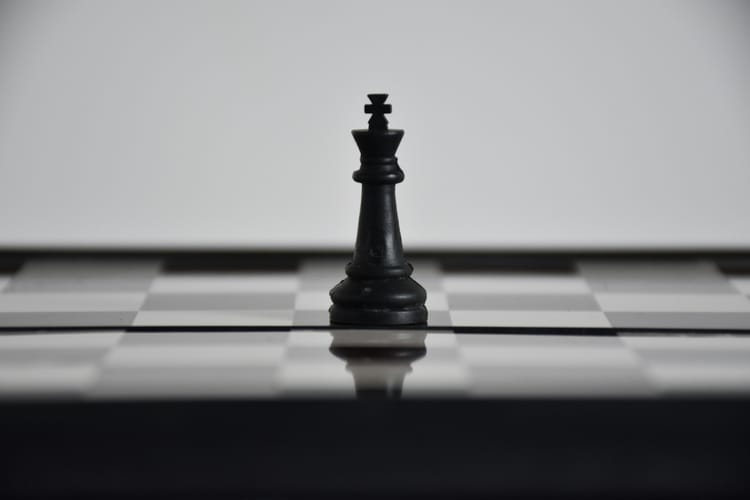
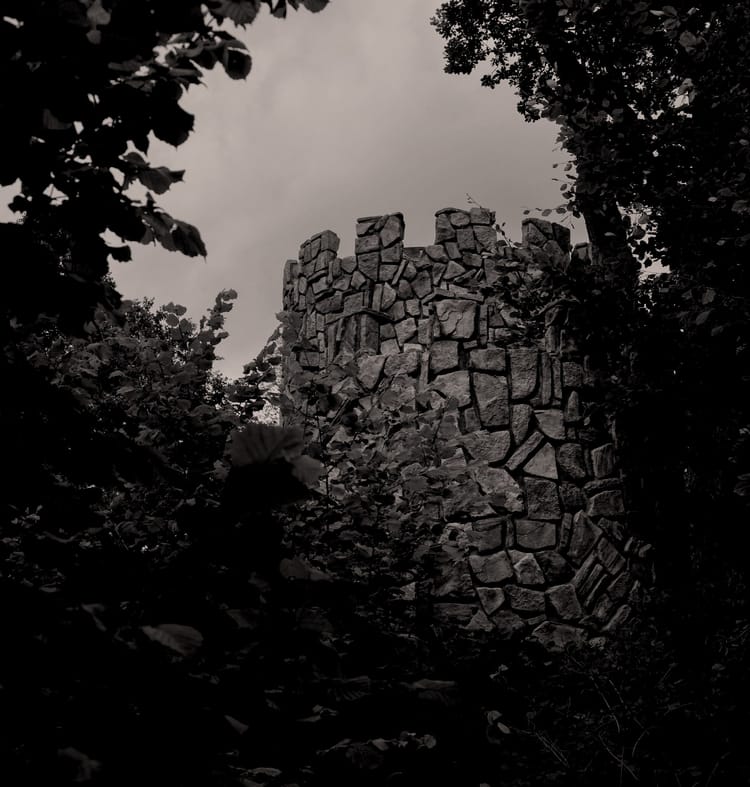
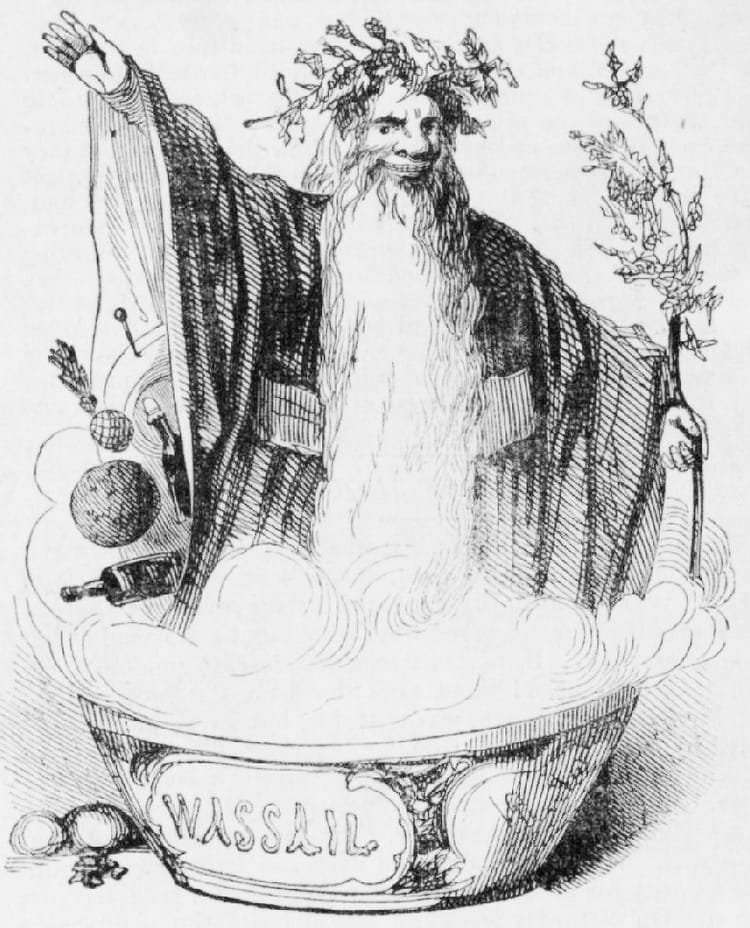
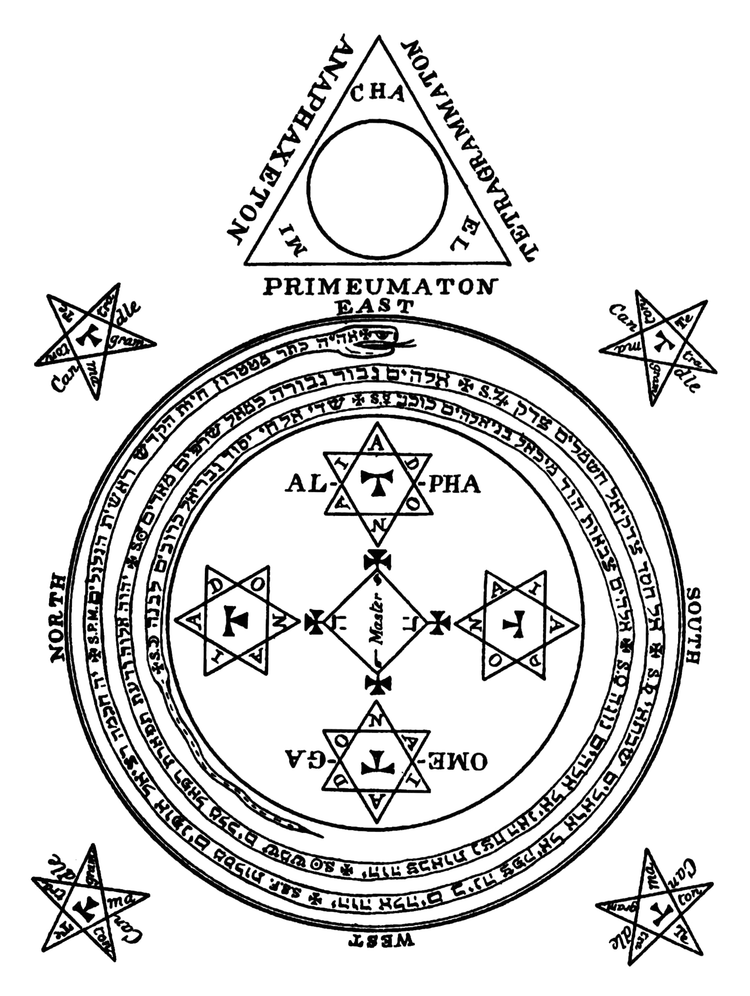
Member discussion